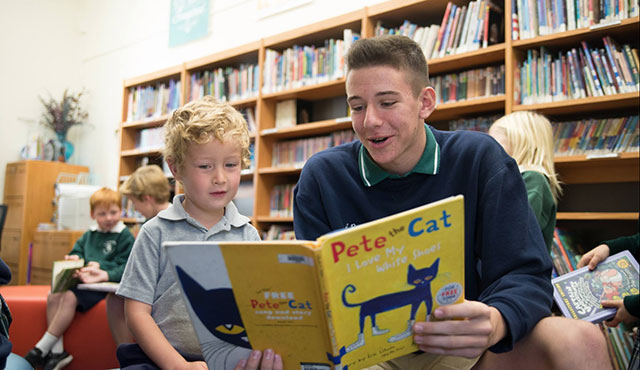Among the many virtues Jesus taught, including love, faith, humility and grace, kindness stands out – even today – as victorious.
As our children face threats to their happiness and well-being, such as the railings of internet trolls and taunts of school bullies, we Catholic parents must double down in our efforts to teach inclusion, compassion and gentleness toward others.
“When people dress differently or have a different way of speaking, or they come from a different culture, we need to practice kindness and inclusion,” says Katie Dawson, director of Parish Faith Formation for the Diocese of Orange.
When John tells us [in John 4:1-26] about Jesus meeting the Samaritan woman, it’s apparent His disciples are immediately put off by the woman’s boldness in questioning Him.
Despite his friends’ hostility, Jesus demonstrates patience with the woman. It matters not that she is a Samaritan and a woman. His actions confirm that everyone can be part of Christianity. And because of his kindness, the woman tells everyone in her village about Him. Many of them believe because of her testimony.
Jesus and the Samaritan woman is just one of many lessons in kindness He teaches us. These expressions of God’s mercy and love indicate that, simply by treating others as equals and welcoming them to the table, we can live His truth.
“With the Samaritan woman Jesus in Scripture he illustrates that the good news of God’s love is for every human person,” Dawson says. “The foundation of our practice of kindness is that we are all brothers and sisters in Christ. Each person has inherent dignity that we must respect through kindness.”
How do we teach our children about kindness and inclusion? Writing on RootsofAction.com, Dr. Marilyn Price-Mitchell recommends that teaching children to care about others is a lesson that must occur daily.
“Learning to be givers shapes children’s values and provides opportunities to develop kindness, a virtue that improves lives and reduces violence and bullying: Dr. Price-Mitchell writes. “Empathy is our ability to recognize and respond to the needs and suffering of others. We can see empathy-in-action all around us. An important part of our internal compass, empathy includes the ways we show caring and compassion to people in our lives.”
Still, modern culture says we are all individuals pursuing our own happiness, notes Dawson. In the face of that notion, she adds, we are encouraged to be helpful and kind to one another. “Make things easier for one another is how we can help children be kind and not self-centered.
“Kids are great mimics. They do what we do, not just what we say. When we fail to extend generosity and mercy, or we don’t demand our spot when we’re driving, or when we say something nasty about other drivers on the road, we must remember that our kids are listening.”
Once children understand the definition of kindness, parents can reinforce the message of caring by taking time on a regular basis to discuss instances of goodwill, learning from each other’s acts of kindness, and considering kindness on a worldwide scale. Sharing encourages self-reflection and helps bring meaning to our actions, Dr. Price-Mitchell says. Most important is that kindness becomes routine with reinforcement and practice.
“Jesus in Scripture encourages us to be helpful and kind to one another,” Dawson says.

